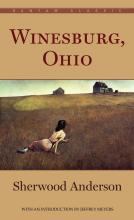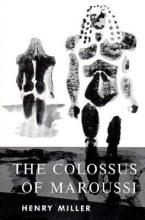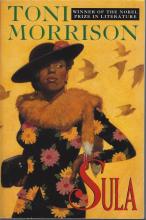Here we are again at English Matters’ semi-annual reading recommendations. We promise recommendations are coming! Scroll down to get right to them. Or, if you please, first indulge a goodbye in the form of preamble.
After a nearly decade long run as editor of the UW English Department Newsletter English Matters, I, Henry Laufenberg, will be retiring from higher education. This decision comes with, I suppose, the usual mix of emotions. I feel great fortune at having had the opportunity to teach thousands of UW’s fantastic undergraduates. And, secondary only to teaching, the opportunity to interact with our greater community through English Matters has been a delight. Thank you all for your kindness and support over the years.
As my farewell to you, I’d like to suggest three great reads from my area of specialization, 20th century American literature. Discovering each of these books propelled and sustained me along a meandering and often-tenuous path through higher education. If not for these and other great books, and for the wonderful English departments that propped me up along the way, I well might still be pulling graveyard shifts at my hometown Shell station. Hopefully you pick up a couple of these books and enjoy them as much as I do. And hopefully it doesn’t come off as corny when I say that your support of the UW English Department -- a place that has enriched countless lives (including mine!) and will continue to do so – is evidence that good people make good places, and vice versa. Thank you!

Sherwood Anderson’s Winesburg, Ohio: A Group of Tales of Ohio Small Town Life. A slim collection of short stories counted by many great American modernists (Faulkner, Hemingway, Fitzgerald, and more) as formative precursor to their own masterworks, Winesburg, Ohio is often lost in the shadows of the aforementioned greats. Not particularly avant-garde in technique, Winesburg, Ohio nevertheless subtly tracks themes one might ascribe to high-Modernist masterworks like T.S. Eliot’s “The Waste Land”: alienation, dislocation, failure of tradition values, failure of absolute truth. It’s neatly-packaged, page-turning Americana with a creeping, amalgamated impact. Anderson’s opening parable about gleaning surely applies to Winesburg’s individual stories: “On the trees are only a few gnarled apples that the pickers have rejected…. One nibbles at them and they are delicious. Into a little round place at the side of the apple has been gathered all its sweetness. One runs from tree to tree over the frosted ground picking the gnarled, twisted apples and filling his pockets with them. Only the few know the sweetness of the twisted apples.”

I’ve read, as much as is possible given that he probably wrote more pages than any other American author in the 20th century, everything that Henry Miller ever wrote. His novel The Colossus of Maroussi, an extended travel log loosely documenting Miller’s time in Greece at the beginning of World War Two, is my very favorite. Much of Miller’s writing has the feeling of a talented artist flinging page after page of paint onto a canvas – maybe it will mean something, maybe it won’t. But The Colossus of Maroussi has purpose born of the intensity of its moment. Miller’s eponymous protagonist lies nude on a beach in Corfu, a person exposed, a person vulnerable and elemental, as Axis alliance bombers fly directly overhead. The novel draws on Miller’s deep knowledge of Eastern philosophy and religion as well as ancient Greek myth and modern Greek though in a struggle to contextualize the Western world once again coming apart at its seams. The novel is beautifully written and grounded in the ordinary, which it occasionally inflates to the ecstatic.

And for my last recommendation, we travel once again to small town Ohio, this time with Toni Morrison’s 1973 masterpiece Sula. Set in roughly the same period as Winesburg, Ohio (and perhaps echoing a few similarities), Sula richly explores a broad set of themes pertinent to Black American community. Sula’s richness as a text is deep and expansive, and its protagonist a master class in character creation outside the web of stereotype. It’s Morrison at her brilliant, challenging, interesting, musical best. Sula was, and still is, widely canonical in the undergraduate English curriculum, but if you somehow missed it, or if it’s been a while, pick Sula up (or pick it up again). You’ll be glad you did.